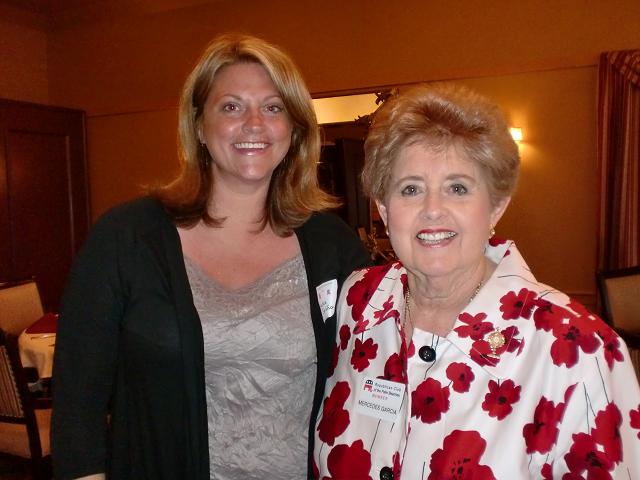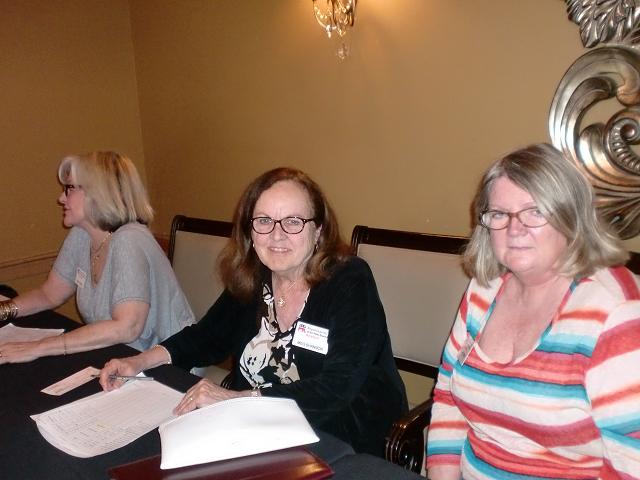A Spirited Discussion About Common Core
As expected, the topic of Common Core led to a spirited discussion by our two speakers, Kate Wallace, Director of Community Engagement for Foundation for Florida’s Future, and Rebecca Negron, a Martin County School Board Member.
Kate described how Florida has made significant gains in educational achievement between 1999 to 2014 with a 24% increase in graduation rates. Further, 30 % of Florida graduates earned a passing score on an AP exam compared to 21.6% nationally, placing Florida third behind only Connecticut and Maryland. On the most recent international student literacy test, Florida ranked second in the world and far above the national average. Our fourth grade math and reading and eighth grade reading improvement is double that of students nationwide.
Higher standards are necessary to prepare students to enter college or the workplace, and the improvement in Florida’s educational results since standards were introduced demonstrate that the higher standards result in higher achievement results.
Kate distinguished among three vocabulary words that are often misunderstood or misused:
1. Standard: The skills we ask to be mastered by a specific grade level
2. Curriculum: A range of approaches to achieve the standards
3. Assessment: The tools to measure objectively whether the standards have been mastered.
As standards change, the curriculum and tests must also change. Children rise to meet standards as they are increased. The progress shown in Florida demonstrates that this works.
Rebecca agreed with Kate that we want our state to be the best in the country in education. Her concern is about the apparent lack of transparency in the development of the standards and curriculum in the past with little involvement of educators and the public. Concerns of various experts point to the Common Core focus being more on writing rather than reading, the failure of the curriculum to develop critical thinking skills, and the developmentally inappropriate programs for children in early grades. Pointing to the design of Common Core, she explained that it is not designed to educate or instruct students using the great stories of western tradition but rather to direct people to be preoccupied with functional aspects.
Rebecca voiced concerns about the Department of Education vetting books for use in the curriculum. Parents are concerned about the biased and negative aspects of human behavior that is found in the curriculum. Teachers also have concerns about the impact on their profession because the evaluations and changes make it hard for them to keep up with the demands. They would like more flexibility to do what they think is best. With regard to the Common Core reading material, she noted that about 70% of it is instructional rather than being good quality literature and only chapters of books are included, rather than entire books.
Rebecca said the most important thing for us to consider is what the purpose of education is. We need to stop having students unready for college, and to educate them so that they grow into respectful and responsible adults. The question we should ask is: “What kind of person do we want to produce?” It will take involvement of all stakeholders, making sure teachers are prepared for teaching to standards, and getting control back to local school districts in all areas. In conclusion, she said that it is good to have this type of discussion because the dialogue is what’s important, we need to identify what our students need to know, and we need to get everyone on board.
In the question and answer period, both speakers agreed that increasing competition is necessary so that parents have a choice in where to send their children for an education. Kate noted that Florida leads the nation in school choice with a variety of traditional schools, charter schools, private schools, on line learning options, and vouchers for pre-kindergarten.
Some pictures by Delia












